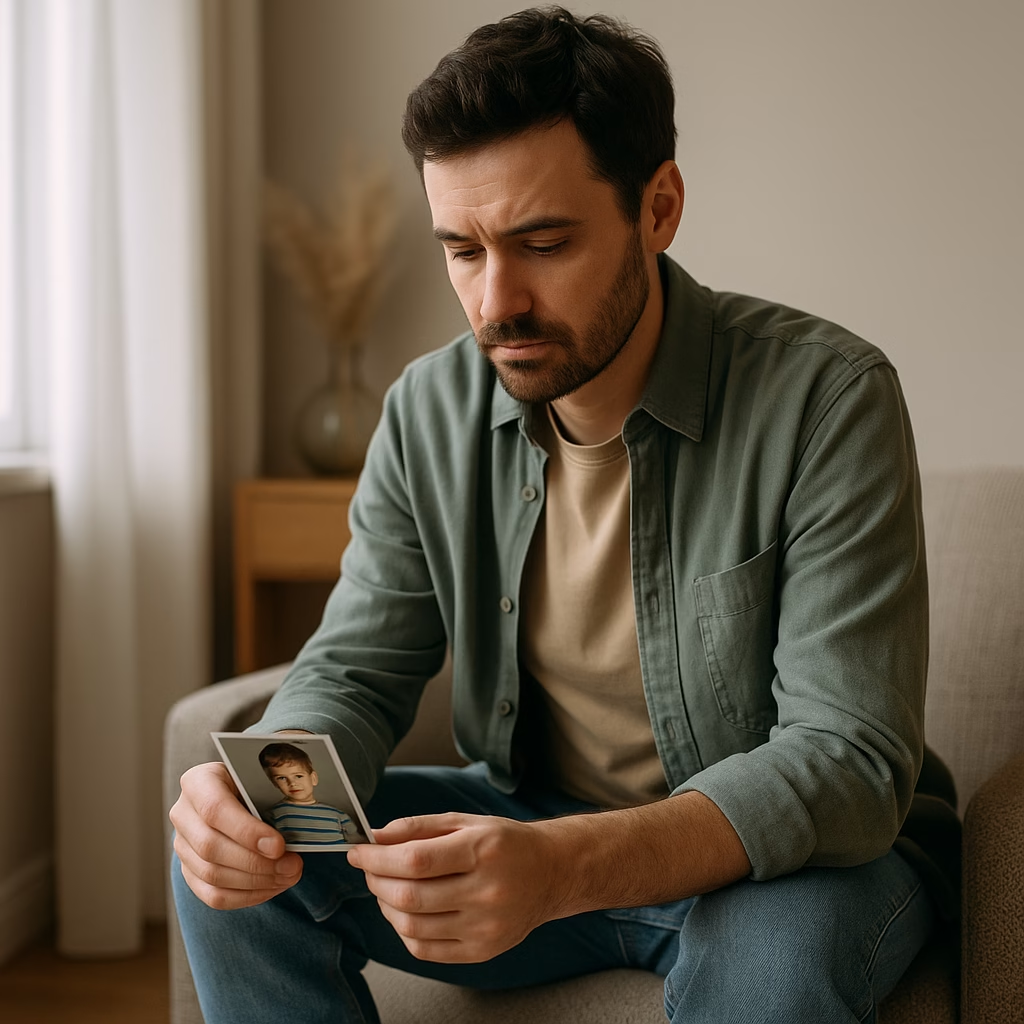
Many adults carry the weight of childhood trauma without even realizing it. The memories may be blurry, or the pain buried under years of coping mechanisms. But emotional wounds from our early years often show up in our adult relationships, self-worth, and mental health.
If you’ve ever asked yourself, “Do I have childhood trauma?” — you’re not alone. This question often arises when we notice recurring emotional patterns, unexplained anxiety, or inner struggles that seem to persist no matter what we do.
What Is Childhood Trauma?
Childhood trauma refers to distressing experiences that overwhelm a child’s ability to feel safe, connected, or supported. These may include:
- Emotional neglect or abandonment
- Physical, emotional, or sexual abuse
- Growing up in a household with addiction or mental illness
- Divorce, domestic violence, or high conflict between caregivers
- Being bullied, rejected, or frequently criticized
Even if you don’t remember specific events, the effects of childhood trauma can linger for decades in the form of emotional, psychological, and relational struggles.
10 Signs of Unresolved Childhood Trauma in Adulthood
Below are common signs that you may still be carrying the impact of early trauma:
1. Chronic Feelings of Shame or Low Self-Worth
Do you constantly feel like you’re not good enough, even when others validate you? Deep-rooted shame is a hallmark of emotional trauma.
2. Fear of Abandonment or Rejection
You may find yourself fearing that people will leave or not truly love you. This can show up as clinginess, people-pleasing, or avoiding closeness altogether.
3. Difficulty Trusting Others
Even in safe relationships, you might struggle with vulnerability, expecting betrayal or rejection.
4. Overreacting to Minor Conflicts
A small disagreement might feel catastrophic, triggering panic or withdrawal. These reactions are often linked to unresolved emotional pain from childhood.
5. Perfectionism or Harsh Self-Criticism
Many trauma survivors develop perfectionist tendencies to try to control their environment or feel “good enough.”
6. Dissociation or Feeling Disconnected from Reality
You may zone out, feel emotionally numb, or struggle to stay present—common trauma responses that served as coping tools in childhood.
7. Attracting Toxic or One-Sided Relationships
You may unconsciously recreate dysfunctional patterns from your family of origin, finding yourself in codependent or emotionally unsafe relationships.
8. Chronic Anxiety or Hypervigilance
A constant feeling that something is wrong or that danger is around the corner, even when everything seems fine, could be trauma-related.
9. Trouble Identifying or Expressing Emotions
Many trauma survivors learned to suppress feelings to survive. As adults, they may feel disconnected from their emotions or struggle to express them clearly.
10. A Deep Sense That “Something Is Wrong With Me”
This belief is a painful legacy of emotional trauma. It may not be rooted in truth, but it feels real—and it affects how you live, love, and relate to yourself.
Healing Is Possible
If you see yourself in these signs, it doesn’t mean you’re broken. It means you survived something painful—and your body and mind are still trying to protect you the best way they know how.
With the help of trauma-informed therapy, you can begin to unlearn the survival responses that no longer serve you. You can create new beliefs, healthier relationships, and a stronger sense of self-worth.
Start Your Healing Journey Today
At Darin King Counseling, we specialize in helping adults understand and heal from childhood trauma, dysfunctional family systems, and emotional neglect. Our virtual counseling services are available to clients across Pennsylvania.
- 💬 Get support for childhood trauma and inner child wounds
- 💻 Virtual sessions available across PA
- 📞 Call or text 724-268-0223 or schedule an appointment online
You’re not alone. Healing starts with understanding—and the courage to ask the question: “Do I have childhood trauma?”
